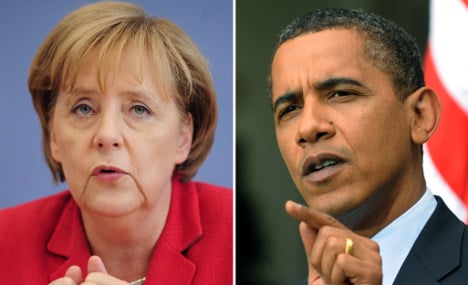In the wake of US President Barack Obama’s show of concern that Germany’s belt-tightening could put the brakes on the global recovery, a defiant Merkel said her government would not back away from its plan to slash €80 billion from the budget by 2014.
The war of words is likely to continue when world leaders meet this weekend in Canada for the G8 and G20 summits.
“We will implement the efforts that we have agreed on,” Merkel told broadcaster ARD. “I believe that we should not back away.”
It should not be forgotten that Germany had taken on record debt this year in order to stimulate the world economy and domestic consumption, she said.
“Eighty billion euros in a federal budget of €320 billion – if another €10 billion can be saved in the next year because we have good economic growth, then that can only be right for us all.”
That would mean smaller interest payments down the track for Germany’s children and grandchildren, she added.
This week, Obama wrote to European leaders saying he was “concerned about weak private sector demand and continued heavy reliance on exports” – a clear reference to Germany.
Merkel responded in her ARD interview: “On the contrary.”
Germany’s economy was set to grow by 2.1 percent this year – higher than the average for comparable countries, Merkel said, adding that she had made this clear to Obama in a phone conversation Wednesday.
“I believe that this argument has been heard,” she said.



 Please whitelist us to continue reading.
Please whitelist us to continue reading.
Member comments